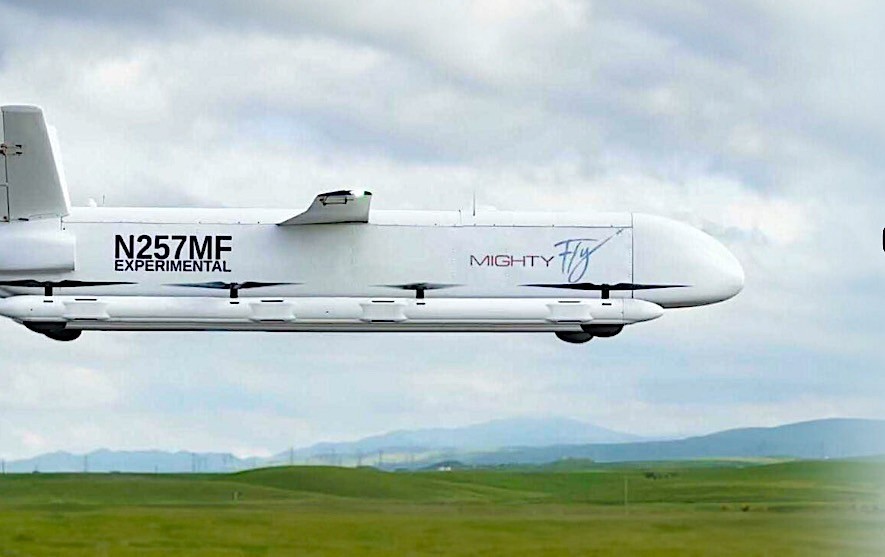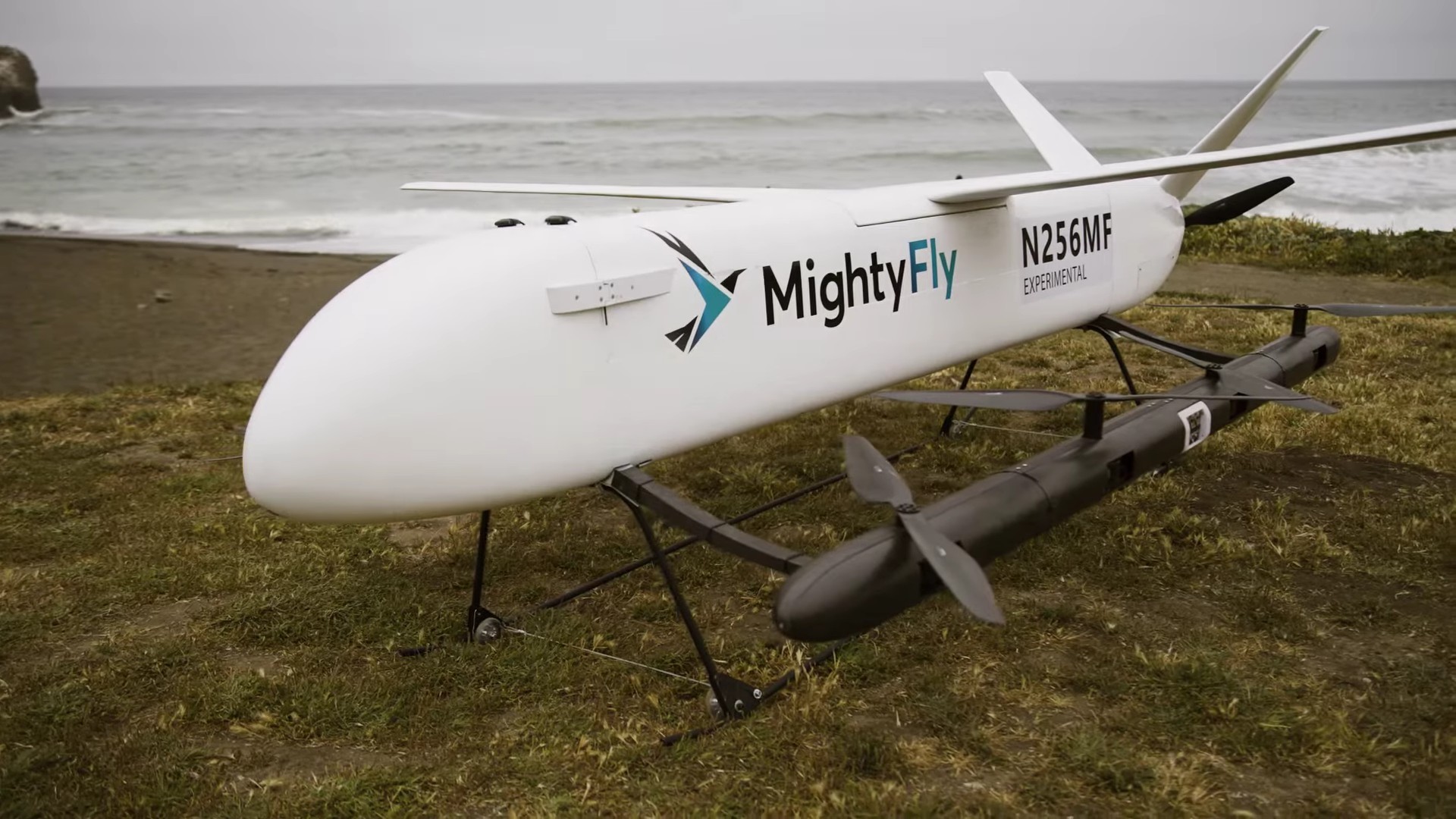Flight corridors serve as aerial highways, guiding aircraft safely from one point to another while avoiding potential collisions with other air traffic. Traditionally reserved for piloted aircraft, these corridors are now adapting to accommodate the increasing presence of drones.
Recently, the Federal Aviation Administration (FAA) granted approval for the first large cargo drone to commence comprehensive flight testing. Named Cento, this drone is manufactured by MightyFly, a company established in 2019 with a vision of revolutionizing goods delivery through unmanned aerial vehicles.
Unlike parcel delivery drones, the Cento is designed to transport heavier payloads over longer distances. It operates as an electric vertical take-off and landing aircraft (eVTOL), powered by eight vertical lift fans and a forward propulsion propeller.

Capable of carrying up to 100 lbs (45 kg) of cargo, the Cento can deliver a substantial number of packages across distances of up to 600 miles (965 km). Equipped with an Autonomous Load Mastering System (ALMS), the Cento autonomously manages cargo loading and unloading to ensure balanced flight.
This technology enables the drone to assess cargo weight and balance independently. After receiving flight corridor approval from the FAA for California, the Cento became the first autonomous drone of its size authorized for operation in the United States.
Operating in Beyond Visual Line of Sight (BVLOS) mode, it will go between New Jerusalem and Byron Airports, reaching altitudes of up to 5,000 feet (1,524 meters). In addition to cargo delivery, MightyFly plans to demonstrate the Cento’s versatility in delivering medical supplies, spare parts, and consumer goods.
Collaborations with the Michigan Office of Future Mobility and Electrification and the US Air Force further highlight the drone’s potential applications. While operational timelines and pricing details remain undisclosed, Cento’s promising capabilities suggest it could become a prominent fixture in global airspace pending successful testing and regulatory approval.

